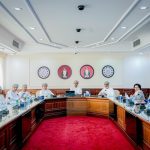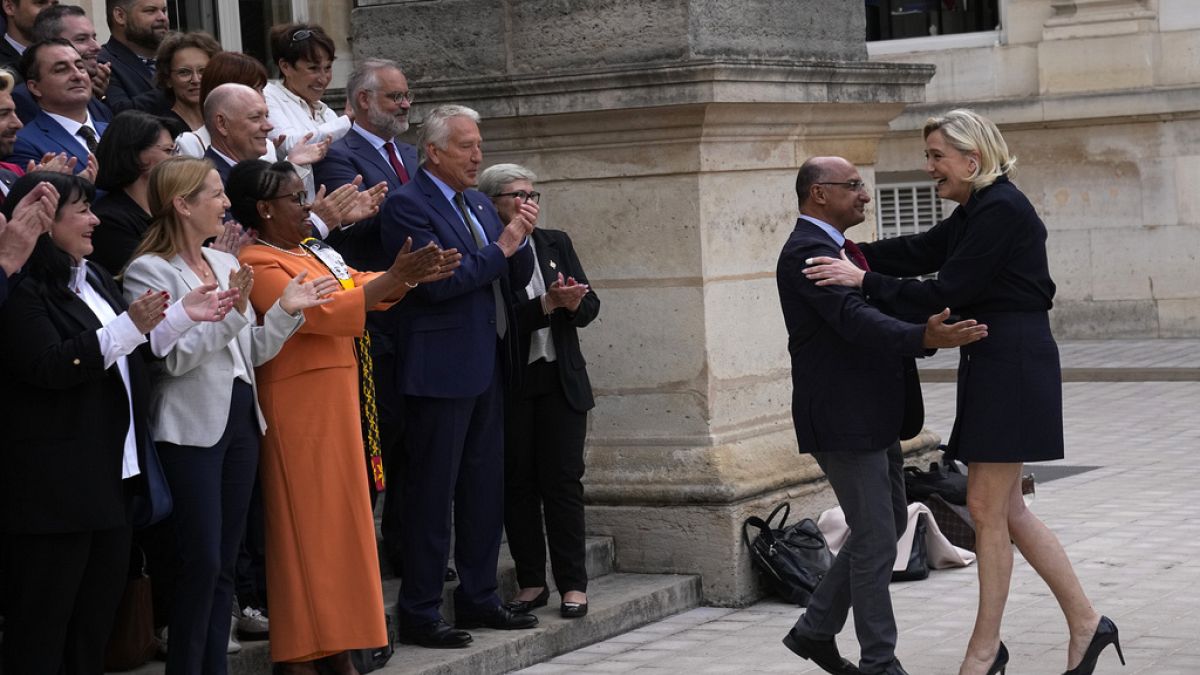After suffering a surprising defeat in the second round of the French legislative elections, the far-right National Rally party led by Marine Le Pen still remains a significant force in the National Assembly. The party’s newly elected MPs arrived at the National Assembly in Paris and the far-right saw significant gains in the election, growing their seats from 89 to at least 123. Despite this, the left-wing coalition New Popular Front (NFP) holds the largest number of seats with 193 out of 577, falling short of the majority threshold. The centrists under President Emmanuel Macron have 164 seats. The National Rally’s increased number of seats means they will play a crucial role in upholding or toppling the future government.
Many National Rally MPs believe that the only way to resolve the looming institutional crisis following the election results is through a new dissolution, which can only happen next year. National Rally President Jordan Bardella emphasized the importance of newly elected politicians being “perfectly irreproachable” during their term. The recent elections were marred by the revelation of racist and anti-Semitic remarks made by National Rally candidates. Meanwhile, the battle for the office of the Prime Minister continues within other political blocs, with the Presidential camp seeking allies to block a left-wing government, particularly the France Unbowed (LFI) party led by Jean-Luc Mélenchon. President Macron has called on political forces that respect republican institutions to form a solid majority group before appointing a new Prime Minister.
While Macron hopes to form alliances with more moderate left-wing parties such as the Socialists and the conservatives from The Republicans party, the newly elected leader of LR, Laurent Wauquiez, has stated that his party will not form a coalition with the presidential camp. On the left, parties are working to come up with a name for Prime Minister and are confident in their ability to govern as a minority government. Mélenchon asserts that the New Popular Front should be the leading political group to appoint the Prime Minister. Macron has appointed his prime minister, Gabriel Attal, to continue handling day-to-day affairs as the first session of the lower house of the French Parliament is set to take place on July 18.
Overall, the National Rally’s increased number of seats in the National Assembly following the French legislative elections has put them in a powerful position to influence the formation of the future government. The left-wing coalition holds the largest number of seats, but falls short of a majority, sparking discussions of potential alliances between different political parties. Macron’s call for a solid majority group to be formed before appointing a new Prime Minister highlights the challenges faced in creating a unified government. The far-right’s presence in the National Assembly and their role in the current political landscape have raised concerns about the potential direction of French politics moving forward. With various political parties vying for power and influence, the future of France’s government remains uncertain.











